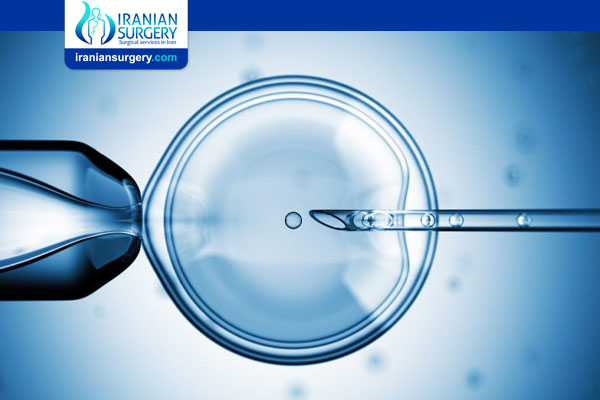IVF Timeline with Genetic Testing
IVF Timeline with Genetic Testing
Most IVF cycles commence at the time of the women’s menstrual period. The details that follow are grouped into the three Basic Principles of the IVF process and may be adjusted based on the individualized needs of the patient.
Ovarian Stimulation & Egg Retrieval
Baseline Test: Day 1
Office visit is scheduled day 2 or day 3 following onset of menses for the purpose of a baseline ultrasound examination and a blood test (usually for follicle stimulating hormone (FSH) and estradiol.)
Ovarian Suppression: 2 – 4 Weeks
Before starting stimulation, medication is used to suppress the ovaries, which can include birth control pills or a medication called Lupron. Ovarian suppression is usually anywhere from 1 to 4 weeks long. At the end of this time, another office visit is scheduled and an ultrasound and blood test performed to ensure that down-regulation has been achieved.
Ovarian Stimulation: 8-12 Days
Ovarian stimulation is started with injectable fertility medications on a day that is chosen by the cycle coordinator. A precise dosage of fertility medications (Follistim, Menopur, Gonal-F, Bravelle, Repronex or a combination of these) per day is begun. Since your doctor may need to change the dose of medication during the day, it is most convenient if the patients take their injections in the evening.
Cycle Monitoring: Starting Day 5
Regular office visits are now begun, starting with day five of stimulation and then continuing every one to two days until follicle aspiration. During each office visit, an ultrasound and blood test for estradiol are performed. You must call at the end of the day (about 3:00 p.m.) to obtain the results of your blood test and to receive further instructions for continued medication.
Ovulation Induction: Between Day 8 and 12
Ovulation is triggered with an injection of human chorionic gonadotropin (HCG), lupron, or both. Trigger is administered when the follicles are judged to be mature, usually 8 and 12 days after the start of injectable fertility medications. The timing of the HCG dose is very important, because follicle aspiration is performed 36 hours after the HCG.
Egg Retrieval: 36 Hours After HCG
On the day of follicle aspiration, you will be asked to come to the office about one hour before your scheduled retrieval procedure. You will go home approximately two hours afterwards. For example, for a 10:00 a.m. aspiration, you should come to the office at 9:00 a.m. and expect to go home sometime after 12:00 noon. The aspiration procedure itself takes less than 30 minutes.
Fertilization & ICSI
Sperm Collection: Day of Egg Retrieval
Sperm are obtained from the male partner on the day of egg retrieval. Occasionally, a final specimen may be requested on the morning after egg retrieval, if fertilization is sub-optimal and the embryologists have reason to believe that an additional sperm specimen would be useful. In order to optimize sperm quality, it is best to abstain from ejaculation for two to seven days prior to the first sperm specimen. In most cases, this will mean abstinence after the seventh day of fertility medications to the woman.
Fertilization: Day of Egg Retrieval
Sperm are then joined with the eggs to allow fertilization. In most cases, sperm solution is added to the eggs and fertilization occurs naturally. If indicated Intra-Cytoplasmic Sperm Injection (ICSI) will be conducted.
Assisted Hatching:
If indicated, Assisted Hatching is conducted to facilitate fertilization. This is routinely done for patients getting preimplantation genetic testing.
Preimplantation Genetic Test: 5-6 Days After Retrieval
If indicated, preimplantation genetic testing (testing for chromosomal status, genetic conditions, and/or gender determination) is done when the embryo is at the blastocyst stage, typically 5-6 days following fertilization.
Embryo Transfer & Luteal Phase Support
Embryo Transfer: 3-5 Days After Egg Retrieval
Fresh embryo transfers are done usually 3-5 days after egg retrieval. Frozen embryo transfers are scheduled during the week. This is a simple procedure, which does not require anesthesia. Occasionally, patients are given Valium to help relax the muscles. Therefore, it is important that each patient have someone to drive them home afterwards. Patients are asked to arrive 30 minutes prior to embryo transfer and must remain in bed for 30 minutes afterwards.
Excess Embryo Cryopreservation:
Any viable embryos in excess of those transferred back to the patient’s uterus may be cryopreserved (frozen) at this time.
Luteal Phase Support: Day of Transfer
You will be given instructions for progesterone supplementation for your embryo transfer. The progesterone is usually administered via injection and vaginal suppositories. Patients are asked to use the progesterone until the end of the first trimester of pregnancy, or when the second blood pregnancy test is negative.
Pregnancy Testing: Day 12 and 14
At least two pregnancy tests are typically done following the embryo transfer. Your Physician will contact you with the results, which are typically available later that afternoon.
About Iranian Surgery
Iranian surgery is an online medical tourism platform where you can find the best doctors and fertility specialists in Iran. The price of IVF in Iran can vary according to each individual’s case and will be determined by an in-person assessment with the doctor.
For more information about the cost of IVF in Iran and to schedule an appointment in advance, you can contact Iranian Surgery consultants via WhatsApp number 0098 901 929 0946. This service is completely free.
Source:
https://uscfertility.org/fertility-treatments/ivf-cycle-details/


